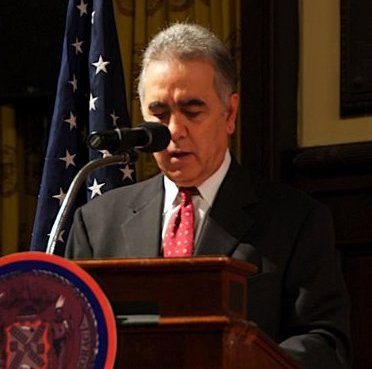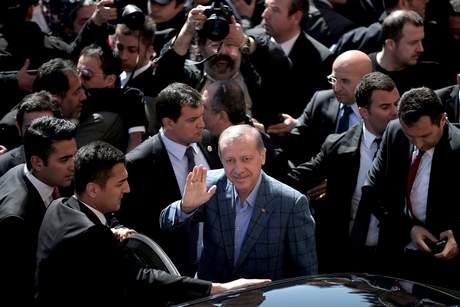While it is not surprising to learn that Turkey and the United States have coordinated their official declarations on the Armenian Genocide, recent revelations have confirmed their shameful behind-the-scenes schemes.
In a speech delivered in Australia late last year, former US Ambassador to Armenia John Evans revealed for the first time that the State Department regularly conferred with the Turkish Embassy in Washington on the content of the US President’s annual April 24 statement on the Armenian Genocide.
This clearly reflects the degree of collaboration between Turkey and the United States on the genocide issue, and even more appalling, American officials’ succumbing to the gag rule imposed by a denialist regime!
The American-Turkish collusion on the Armenian Genocide issue was recently corroborated by Deniz Kahraman in the Aydinlik Turkish newspaper, revealing that the two governments jointly drafted the statement that Prime Minister Erdogan issued on April 23, 2014. He offered condolences to Armenians, Turks, and others who died from various causes during World War I, thus equating the deaths of Turkish soldiers with Armenian Genocide victims.
Basing his information on unnamed diplomatic sources, Kahraman wrote that the White House had been fully aware of the content of Erdogan’s statement in advance of its release. In fact, the Turkish Prime Minister’s text was prepared with U.S. input and finalized by officials in both countries. It appears that the initial text was prepared by the Turkish Foreign Ministry, after which the White House made some modifications, “based on U.S. sensitivities” on this issue. On April 21, the Turkish Foreign Ministry forwarded the final text to Prime Minister Erdogan’s office which released it to the public on April 23.
Kahraman also revealed that in return for accepting U.S. modifications of Erdogan’s statement, Washington offered to block the pending Armenian Genocide resolution in the Senate, after its adoption by the Foreign Relations Committee in early April.
Aydinlik reported that Foreign Minister Ahmet Davutoglu has personally followed since last year the Armenian Diaspora’s preparations for the 100th anniversary of the Armenian Genocide. Turkey is reportedly evaluating its countermoves, which include convincing the Armenian government to revive the comatose Armenian-Turkish protocols, while simultaneously energizing the mediating efforts of the OSCE Minsk Group to resolve the Karabagh (Artsakh) conflict through public diplomacy.
According to Aydinlik, Ankara is evaluating its plans on how best to counter Armenians who are pursuing their demands from Turkey through three separate channels: “legal, political, and public opinion.” Kahraman reported that a serious political rift emerged last June between Turkey and the US, after which Washington started pressuring Turkey to take more resolute steps on the Armenian Genocide issue and normalize relations with Israel. To appease the United States, the Turkish Prime Minister issued a statement on April 23, on the eve of the 99th anniversary of the Armenian Genocide.
Aydinlik also reported that the decision of the European Court of Human Rights in favor of Turkish denialist Dogu Perincek had strengthened Ankara’s hand in international circles. However, Washington wanted Turkey to be more accommodating on the Armenian Genocide issue. That is why Turkish and US officials orchestrated the release of a public statement by Erdogan on April 23, right before Pres. Obama’s own statement on April 24.
It is therefore not surprising that State Department spokeswoman Jen Psaki had high praise for Erdogan’s April 23 statement, describing it as a positive step that would pave the way for improved relations between Armenia and Turkey. Unbeknownst to the public, the State Department was in fact praising a statement that it had helped draft.
While Turkey and the United States are playing a dishonest game of publicly supporting each other’s privately orchestrated statements on the Armenian Genocide, Foreign Minister Davutoglu let the cat out of the bag by announcing in Parliament that Erdogan’s April 23 message of condolences was part of the Turkish campaign to undermine Armenian efforts to commemorate the Centennial of the Genocide.
Finally, I wish to remind all those who have wrongly claimed that Erdogan’s April 23 message was an unprecedented pronouncement by a Turkish leader, almost 90 years ago, on June 22, 1926, Pres. Kemal Ataturk made a truly bold statement in an interview with the Los Angeles Examiner: “These leftovers of the Young Turk Party who should have been made to account for the lives of millions of our Christian subjects who were ruthlessly driven en masse from their homes and massacred….”




